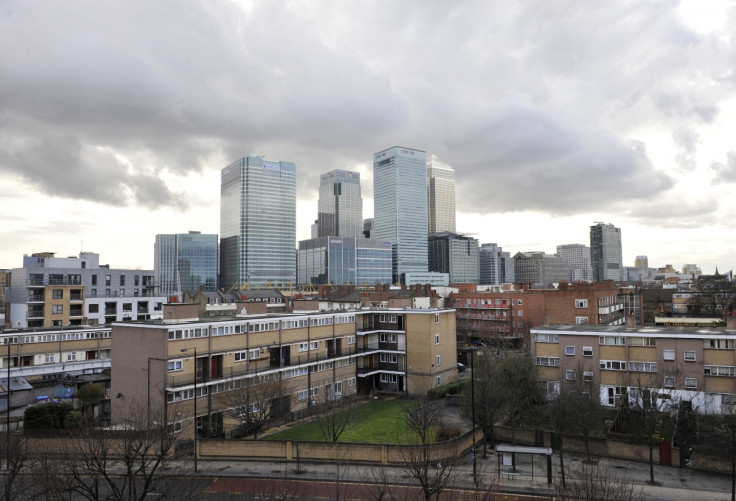Local councils have failed Britain's Brexit-voting poor - it is time for business to take over
We need a new Dragon's Den approach to foster entrepreneurship

Over the years we have gone beyond measuring wealth of individuals, regions or nations in monetary valuation terms alone; it's not what you've got, it's what you do with it which has been the conventional wisdom on the matter.
A new report called The UK Prosperity Index encourages us to look at our communities in a new way, starting with an assessment of our wealth and seeing how we can make it more "sticky" in the form of an evaluation of our prosperity, the bridge between the two being our well-being.
Alexandra Mousavizadeh, the author, blames the economic drivers of Brexit: "The recent referendum result made clear that a large proportion of Britons feel left behind by globalisation – that, for them, aspiration and opportunity have been extinguished," she said.
"They are right. The UK Prosperity Index shows a significant negative relationship between prosperity and the share of the Leave vote. Those areas that voted to leave the EU were far more likely to be areas that prosperity has passed by, areas for which the country is not working."
I'd imagine that if wealth on its own were evaluated between countries, Britain would fare much better than its current 14<sup>th ranking on prosperity, which makes it in our commercial interests to know why this isn't happening.
Wealth and its distribution has always been a challenge in Britain. Take banking. Until around 30 years ago, the huge profits made by banks were retained by an aristocratic elite, who tended to hoard rather than spend their gains.
This all changed with the emergence of the 'barrow boy', the East London trader swapping his Essex market stand for commodities at new bodies like the financial futures house LIFFE in the City. They earned themselves relative fortunes, allowing them to buy Porsches, big houses and spend large in West End restaurants.
"Localism" sounds very good until you inspect it up close.
City snobs found the process distasteful but the barrow boys were ploughing their money back into the economy, generating a well being of sort for the spenders and the receivers of this cash. At least there was a redistributive effect of this new wealth.
The report meticulously assesses Britain region by region across a number of criteria from business survival rates to the numbers achieving the lowest levels of qualifications. The gold medal for failure in this last category is a place called Sandwell, where 22% of the population have none.
I know Sandwell for a reason that makes me dispute one of this otherwise extremely valuable report's recommendations, namely that responsibility for changing these inequalities should be placed in the hands of local authorities.
I got to know Sandwell because three governments ago I was asked to be part of a review of a £1.5bn initiative called the Working Neighbourhoods Fund. These monies were placed into the hands of ten councils on a similar assumption that local people knew better how to fix local problems.
Sadly I saw no evidence that this was the case. The council in Sandwell, a desperately bleak and miserable part of the west Midlands, where one third of the people found work in Birmingham because there was none in their town, the rest remaining on benefits.
The councillors there used the money they received to build a disastrous arts centre designed by a whacky London architect, which probably won him awards for its iconic look yet no-one ever went there. Sandwell is as poor today as it was back then.
Another council used the money they got from the fund to lower council charges to make them popular enough with voters to get them re-elected. Funnily enough, our damning report got buried. "Localism" sounds very good until you inspect it up close.
Suggesting a new bureaucratic layer to form Local Prosperity Partnerships to sit under the current Local Economic Partnerships seemingly makes sense unless you've actually worked inside this system.
There are many millions if not billions of government cash sloshing around trying to kick-start economic growth in our blighted areas and these hopeless schemes are typically initiated by uninformed ministers and their equally well meaning but often out of depth civil servants who celebrate localism as it gets this problem off their back.
If we are serious about redistributing wealth and creating better well-being to drive sustainable prosperity, the business community needs to be empowered to drive this. Large numbers of us would happily give time not just to mentor and motivate, as we already do, but also to sensibly invest or lend that cash straight into the hands of the people who will trigger the revival we all seek.
A mega scale Dragons Den is what we need where people who know how to make a successful business – not bankers, not councillors – empower the next generation of entrepreneurs.
Iqbal Wahhab OBE is the founder of London restaurants The Cinnamon Club and Roast. His book Charity Sucks is published by Biteback Publishing.
© Copyright IBTimes 2025. All rights reserved.





















